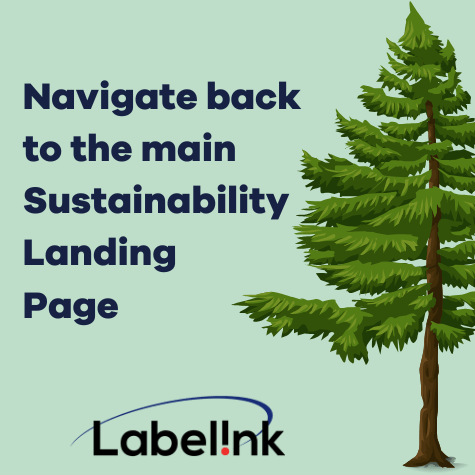
Sustainable Packaging Materials
Renewable Packaging Materials: A Shift Away from Fossil Fuels and Trees
Path To Sustainability: Renewable
As brands move toward sustainable innovation, renewable sourcing has become a key pillar in eco-friendly packaging design. From non-tree paper alternatives to bio-based films, today’s materials are redefining what’s possible beyond virgin pulp or petrochemical plastics.
This post explores a growing portfolio of renewable packaging solutions including FSC-certified papers, agricultural byproduct papers, and plant-derived films.
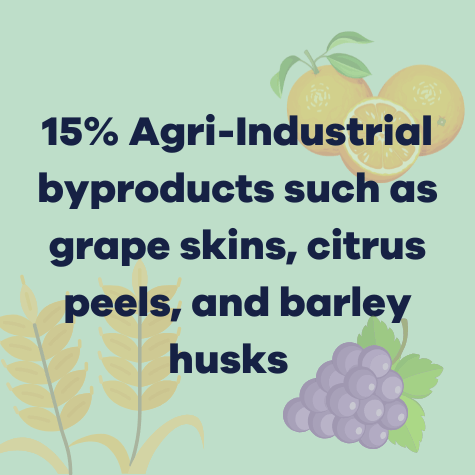
Beyond Trees: Non-Wood Paper Alternatives 🍇
These innovative renewable paper facestocks are a bold shift from traditional tree-based paper. These papers are made with:
- ~15% agri-industrial byproducts such as grape skins, citrus peels, and barley husks
- 40% post-consumer recycled waste
- 100% Pure Cotton Wet Strength – made from natural cotton fiber, a renewable alternative to wood pulp
- Hemp Derived Wet Strength Paper – harvested from industrial hemp, which grows quickly and with minimal environmental impact
The composition of agricultural waste with post-consumer waste reduces reliance on forests and makes use of natural materials that would otherwise wind up in landfills. Renewable packaging materials are efficient and practical. For wine, food, and artisanal products, agricultural byproduct labels offer a tactile, eco-forward story that supports regenerative sourcing.
✅ Ideal for wine bottles, wellness brands, and natural product packaging.
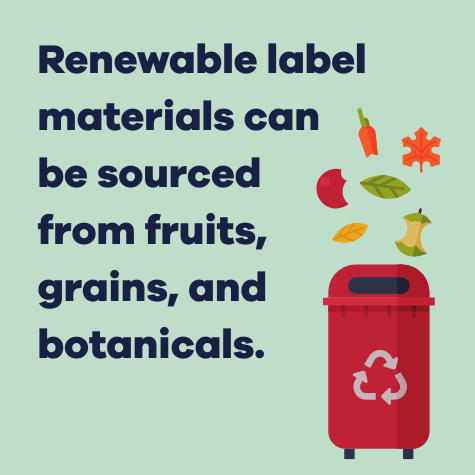
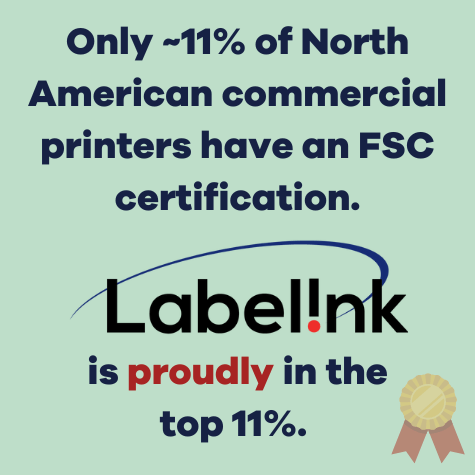
🌿 FSC®-Certified Papers: Responsible Tree-Based Options
While not all paper alternatives are non-wood, those certified by the Forest Stewardship Council® (FSC®) offer renewable packaging options when responsibly sourced.
Examples include:
- 70# Classic Crest FSC® – a smooth, premium paper with FSC certification for forest-friendly sourcing
- Semi-Gloss FSC® – economical and performs well in wet-applications such as craft beverages, refrigeration and more.
These materials deliver on both aesthetics and environmental responsibility. Our FSC® certification ensures the wood or plant source is harvested sustainably.
🌱 Renewable Films: Plant-Based, Not Petrochemical 🌲
Recently developed, this wood-based polypropylene film, certified by ISCC PLUS, is unlike conventional plastic films made from fossil fuels. Labelink’s tree-derived film uses residues from sustainably managed forests, turning trees into high-performance labeling films via a mass balance approach.
- Made from tall oil, a byproduct of paper pulping—no new trees cut
- Visually indistinguishable from standard PP films
- Enables brands to transition away from oil-derived plastic labels
✅ Ideal for food and beverage, personal care, and premium packaging seeking a plastic-like appearance without fossil fuels.
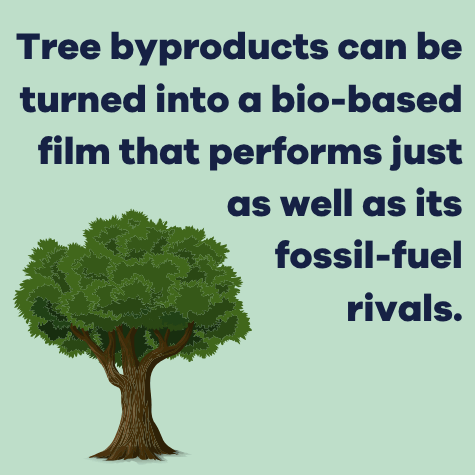
Why Renewable Matters More Than Ever
With global packaging regulations tightening and consumer demand rising, switching to renewable resources is not just smart—it’s necessary. Materials made from agriculture, fast-growing plants, and certified forests help your brand:
- Reduce dependence on fossil fuels
- Preserve biodiversity by avoiding deforestation
- Tell an authentic sustainability story your customers will trust
We Help You Test for Success
Not sure if thinner materials will work for your application? We’re here to help. Our team provides testing and validation support to ensure your packaging performs as expected — before you commit.
Ready to explore renewable, more sustainable packaging materials?
Let’s talk about how we can help you cut costs, reduce waste, and support your sustainability goals — all by choosing smarter, thinner materials.
Explore the Other Sustainability Paths

REDUCE

RECYCLABLE

REPURPOSED

BIODEGRADABLE



